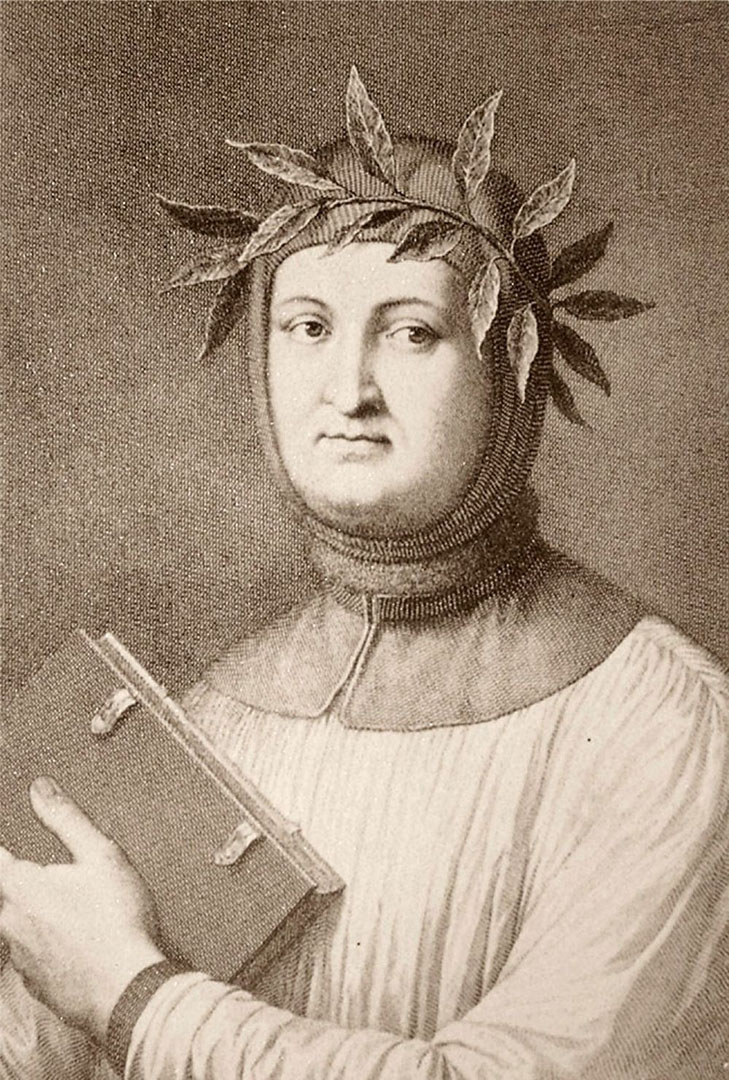My mistress’ eyes are nothing like the sun;
Coral is far more red than her lips’ red;
If snow be white, why then her breasts are dun;
If hairs be wires, black wires grow on her head.
I have seen roses damask’d, red and white,
But no such roses see I in her cheeks;
And in some perfumes is there more delight
Than in the breath that from my mistress reeks.
I love to hear her speak, yet well I know
That music hath a far more pleasing sound;
I grant I never saw a goddess go;
My mistress, when she walks, treads on the ground:
And yet, by heaven, I think my love as rare
As any she belied with false compare.
William Shakespeare

This is one of the most commonly known, but among the most misunderstood and most misinterpreted of Shakespeare’s sonnets. Commensurate with the common misinterpretation is what is equally always overlooked – the subtle line of humour that runs throughout the first 12 lines – in all of the poem except the last two lines that are deliberately serious and mean what they say.
“My Mistress’ Eyes” is Number 130 in the collection of 150 sonnets, the world’s most famous and most astonishing sequence of short poems. The sonnet sequence Astrophel and Stella by Sir Philip Sidney also stands out in this category, and interestingly and ironically, it is among the poetry that Shakespeare parodies and laughs at in “Sonnet 130”.
It is ironic because Sidney makes certain claims and criticisms in his poems. He throws snide remarks at the common practice among fellow poets of his time who often copy from others or stick to a convention without much individual invention. Sidney further boasts about his own originality and that he is not among those who copy. But in Astrophel and Stella, he is writing within a common convention among sixteenth century and Elizabethan poets – the same convention that Shakespeare laughs at in “Sonnet 130”. And while doing this, Shakespeare is far more original and cleverer than Sidney, who uses the sonnet sequence to boast of his cleverness.
But why is this poem misunderstood? Most commentators and critics, including some relied upon and often consulted by secondary school teachers and students, explain that Shakespeare is expressing his love for his mistress in the poem. In that, they are correct. But they go on to say the poet here is admitting that his mistress is ordinary, and not beautiful as other women written about and praised by poets. He is admitting that his mistress is plain, unremarkable and even unattractive. He concludes the poem by declaring that in spite of her ordinariness, he loves her, and cherishes her just as much as those who express praise and love for their beautiful mistresses.
In that, they misread the poem.
What is more, Shakespeare is responsible for those erroneous interpretations. He deliberately misleads the reader in his use of language, but more so does it to make his point. In the poem, the poet is telling the truth about women in general, and about the natural elements. While he misleads with his deliberate choice of words, he never anywhere say his mistress lacks beauty. This deception is a part of his overall scheme in the poem through which he wants to laugh at a convention and tradition.
This convention is the Petrarchan, very popular among poets of the Elizabethan era in which Shakespeare wrote. Francesco Petrarch was an Italian Renaissance poet of the 14th Century, one of the great influences of the early Renaissance, in similar exalted stature of other Italians: Dante Alighieri and Giovanni Bocaccio. Petrarch was the founder of the sonnet form, especially known for the Petrarchan sonnet in which lovers praise their mistresses and also in which lovers complain about the ill treatment sadistically meted out to them by the mistresses in two sides of the Courtly Love tradition.
The Petrarchan sonneteers would exaggerate in their extravagant praise of the beauty of the women. In the other part they are extremely elaborate in the expression of their suffering at the cruelty of the women who would love them and leave them. This gave rise to the “Petrar-chan Conceit” – an over-exaggerated metaphor or image. For example, they would shed tears which cause great floods, or they would utter such great sighs that tempests arise. Another famous sonneteer, John Donne, pokes fun at these conceits in his reference to “tear floods” and “sigh tempests”.
On the other side, the women would be described as in possession of such stunning beauty that their eyes are brighter than the sun; their lips as red as coral; their skin as white as snow; their cheeks like roses; they glide like goddesses as they walk; their voices more melodious than music; and their breath like perfume. Those are all the conceits with which poets describe their ladies, comparing them to things of unimaginable beauty.
Shakespeare ridicules these ridiculous comparisons by saying his mistress does not compare to any of them. He is very realistic about her, giving a fairly truthful, factual description of her in contrast to the outlandish claims about eyes being like the sun and breath like perfume. There is mild humour in almost every line.
“I love to hear her speak, yet well I know
That music hath a far more pleasing sound;
I grant I never saw a goddess go;
My mistress, when she walks, treads on the ground”
In one of the most deceptive lines he confesses that perfume is more delightful than “the breath which from my mistress reeks”. He deliberately uses “reeks” in a denotative sense to mean “emanate”, “give off” or “radiate”, knowing readers will think he means it is “unpleasant”. All he is saying is that it is just not true that the breath of a lady emits perfume. The poet is having a good laugh at this.
The last two lines of the poem, however, are very seriously intended, and they cap off an extremely clever poem, characteristic of the poet’s innovation and originality. Shakespeare intends to debunk the Petrarchan tradition of which his contemporaries were so fond. Yet, he makes use of it to praise his mistress – the same one who does not glide like a goddess, but treads on the ground.
He describes all the exaggeration and conceits as “false compare” – they are unrealistic, lies. Yet he says, his mistress is rarer than they are. He is cleverly praising his mistress just as much as the Petrarchan sonneteers do, but he says he does not have to tell lies about her in order to do it.
Unlike what so many critics of the poem claim, Shakespeare is not saying he loves his mistress in spite of the fact that she is unattractive and not as beautiful as the ladies praised by the Petrarchans. He declares with as much linguistic elaborateness as they use, that she is just “as rare”, just as outrageously beautiful, as any of them.
And he does it with the use of the dramatic concluding couplet for which the Shakespearean sonnet is famous.







